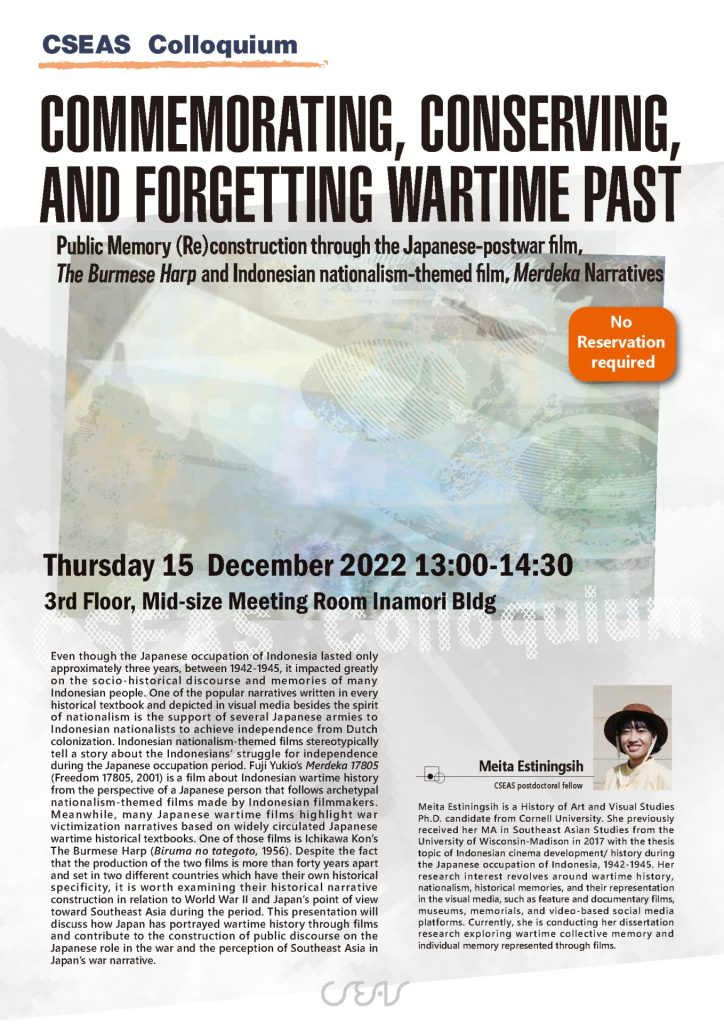Date & Time: Thursday 15 December, 2022, 13:30-14:30
Venue: Middle-sized Meeting Room (No.332), 3rd Floor, Inamori Foundation Memorial Building
Title: Commemorating, Conserving, and Forgetting Wartime Past: Public Memory (Re)construction through the Japanese-postwar Film, The Burmese Harp and Indonesian Nationalism-themed Film, Merdeka Narratives
Speaker: Meita Estiningsih
Even though the Japanese occupation of Indonesia lasted only approximately three years, between 1942-1945, it impacted greatly on the socio-historical discourse and memories of many Indonesian people. One of the popular narratives written in every historical textbook and depicted in visual media besides the spirit of nationalism is the support of several Japanese armies to Indonesian nationalists to achieve independence from Dutch colonization. Indonesian nationalism-themed films stereotypically tell a story about the Indonesians’ struggle for independence during the Japanese occupation period. Fuji Yukio’s Merdeka 17805 (Freedom 17805, 2001) is a film about Indonesian wartime history from the perspective of a Japanese person that follows archetypal nationalism-themed films made by Indonesian filmmakers. Meanwhile, many Japanese wartime films highlight war victimization narratives based on widely circulated Japanese wartime historical textbooks. One of those films is Ichikawa Kon’s The Burmese Harp (Biruma no tategoto, 1956). Despite the fact that the production of the two films is more than forty years apart and set in two different countries which have their own historical specificity, it is worth examining their historical narrative construction in relation to World War II and Japan’s point of view toward Southeast Asia during the period. This presentation will discuss how Japan has portrayed wartime history through films and contribute to the construction of public discourse on the Japanese role in the war and the perception of Southeast Asia in Japan’s war narrative.
Meita Estiningsih is a History of Art and Visual Studies Ph.D. candidate from Cornell University. She previously received her MA in Southeast Asian Studies from the University of Wisconsin-Madison in 2017 with the thesis topic of Indonesian cinema development/ history during the Japanese occupation of Indonesia, 1942-1945. Her research interest revolves around wartime history, nationalism, historical memories, and their representation in the visual media, such as feature and documentary films, museums, memorials, and video-based social media platforms. Currently, she is conducting her dissertation research exploring wartime collective memory and individual memory represented through films.
